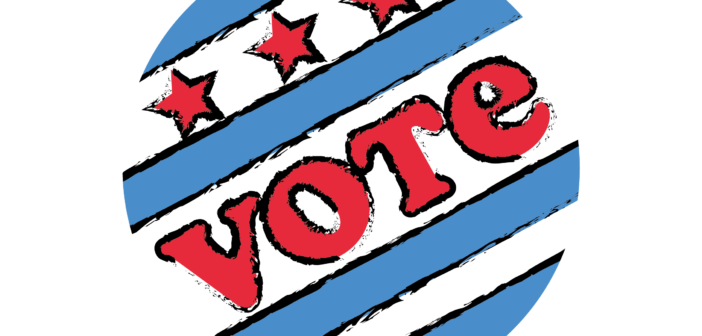On Tuesday, March 20, there was a primary for the midterm elections that will be coming up this November. It was surprising for many reasons, specifically the turnout. Dr. Suzanne Chod, associate professor of political science who studies American politics, had a few things to say on the matter.
“So, while we see young people being more involved, not with voting necessarily, but being more active in other ways that we call ‘thick’ forms of participation like protesting, speaking, signing petitions and donating,” said Chod. “We have seen other constituencies, like women, African Americans and in particular black women coming out in larger rates. The Alabama Senate race is an example at the end of last year.”
According to an article from Vox, there has been an increase in Democratic voters in the Illinois primary while there was a decrease in Republican voters.
Chod cites two main factors that are common in midterm elections. “One is that we can look at the midterm as a referendum on the president. If the president is not on the ballot, but we can vote against his co-partisans, we tend to see his party lose favor, lose seats in the midterm,” she said. “The other is what we call ‘the surge and decline’ which is that in a presidential year we see a surge of voting, of both partisans and more independent or leaning voters, less intensely partisan voters, they tend to come out and vote in a presidential year.”
Despite these time-honored trends, there are some differences in this year’s primaries, Chod points out. “(Democrats are) more excited about the midterms ’cause they see it as an opportunity to either crack into the majority or crack at getting closer to being in the majority or actually taking over the majority, which is difficult to do,” said Chod. “Whereas Republicans, some who maybe voted for the president, we see some surveys to suggest that there may be regret in that voting or were propelled to vote for him for particular reasons, but don’t usually vote in the midterm, so they’re less likely to vote.”
When asked if she voted in the primary, she said she “did vote in the primary, and I was actually out of town so I voted early, and I will absolutely vote in the midterm.”
North Central student Nick Keseric, ’19, a junior majoring in computer science and interactive media studies and head of the Nerd Culture Club, said he didn’t vote, but he does intend to vote in the midterms. “I don’t really care for political parties, and so for me at least, voting in the primaries and such, it’s just sort of supporting some party I don’t really care about,” he said.
Elizabeth Watson, ’18, a senior majoring in Chinese and East Asian Studies, did vote in the primary. “I voted in the midterm primary because my parents were going and it was a good idea,” she said. “I honestly wish I was more interested in politics because I know I should be, but I’m not as attached to it as maybe I ought to be.” She does intend to vote in the upcoming midterms and hopes to be more well-versed in the issues by then.
“No, I did not vote, because I wasn’t really informed by it nor was it campaigned enough for me,” said Ivan Bohorquez, ’19, a junior majoring in accounting and finance economics. He did add that he intended to vote in the midterm proper.
For students, Chod did have these words: “My plug always is to go vote. If you didn’t vote in the primary, that doesn’t mean you can’t vote in the general. You can continue to participate in other ways, some would argue more meaningful ways, like activism and other things.”
However, she did end with a warning for those looking to inform themselves. “I think the other thing I would say is that there’s a lot of media coverage, a lot of things we can read, some fake, some real, some biased, some not,” said Chod. “The most important thing is to educate yourself, and use sources that are giving you fact-checked evidence, and base your opinion off of those things.”

